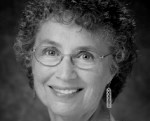By Janice Lindsay, Contributing Writer

May is Personal History Awareness Month.
You might ask, “Who decided that?” I find no definitive answer. But somebody thought it was a good idea, and other somebodies picked up on it and put it on the internet, and here we are.
It’s a good idea to encourage us to write our own personal histories. If we do, we won’t be a mystery to future generations as so many of our ancestors are to us.
I think of this as I peruse a collection of family photos. I know who all these people are. I grew up with them. Some day, I promise, I will get around to labeling each photo in faithful left-to-rights. But I never quite get to it. So at some future time, a descendant will gaze at one of these photos and say, “I wonder who that was.”
I know this will happen because it’s what I do as I survey even older photos, taken before I was born. Whoever collected these, most likely my grandmother, knew who all those people were and probably promised that some day she would label them so that descendants like me could identify those people. She was just as much a procrastinator as I am. I inherited it from her.
So, for instance, there’s a photo titled “Jenks Family Reunion,” no date, no identifications. Eleven young adults stand, smiling, in two rows in front of somebody’s front-door arbor, on a summer day. I recognize the young versions of my grandmother and her two sisters; another woman looks vaguely familiar, the other seven are mysteries. I want to say, “Grandma, why didn’t you label the photos?” She would reply, from wherever she is, “Why don’t you label yours?”
Not that it’s critical to know who these people are. But I like to think that some future observer will see my photo and say, “That’s my great-aunt Janice. She was my grandmother’s sister,” instead, of “Who the heck is that?”
We Americans often don’t pay much attention to who our ancestors were or where they came from. It’s who you are now that counts. Still, our ancestors are part of who we are, whether we know them or not. They anchor us in time and place. They give our lives historical context.
I often watch the popular PBS program “Finding Your Roots” with historian Henry Louis Gates, Jr. His teams of researchers search historical records of all kinds to uncover ancestral histories of famous people. The records nearly always take them across one ocean or another because we’re nearly all descended from immigrants, many who came here on purpose, many who came enslaved. It’s important for us to know that.
Back in the 1980s, my mother and her sister, who are both gone now, wrote stories from their childhood to share with children and grandchildren. Their booklet included their experiences, photos, and some genealogy.
When my husband realized he was losing his memory to Alzheimer’s, he wrote the story of his life before his memories could disappear. He also included photos.
Both of these treasured documents are on paper, the one medium of information storage that does not become obsolete, for future generations to cherish and enjoy.
During my writing career, I’ve learned from interviewing many people that most people think that their personal stories aren’t very interesting. I’ve also learned that everybody has an interesting story. The older you are, the more story you have. Future generations will enjoy reading your story. But they’ll know your story only if you write it down.
Maybe I will write my own story. Some day.
Contact jlindsay@tidewater.net
RELATED CONTENT:
My Life My Story program adds life stories to veteran’s medical records (fiftyplusadvocate.com)
Write a memoir to bring your life story to the printed page (fiftyplusadvocate.com)











